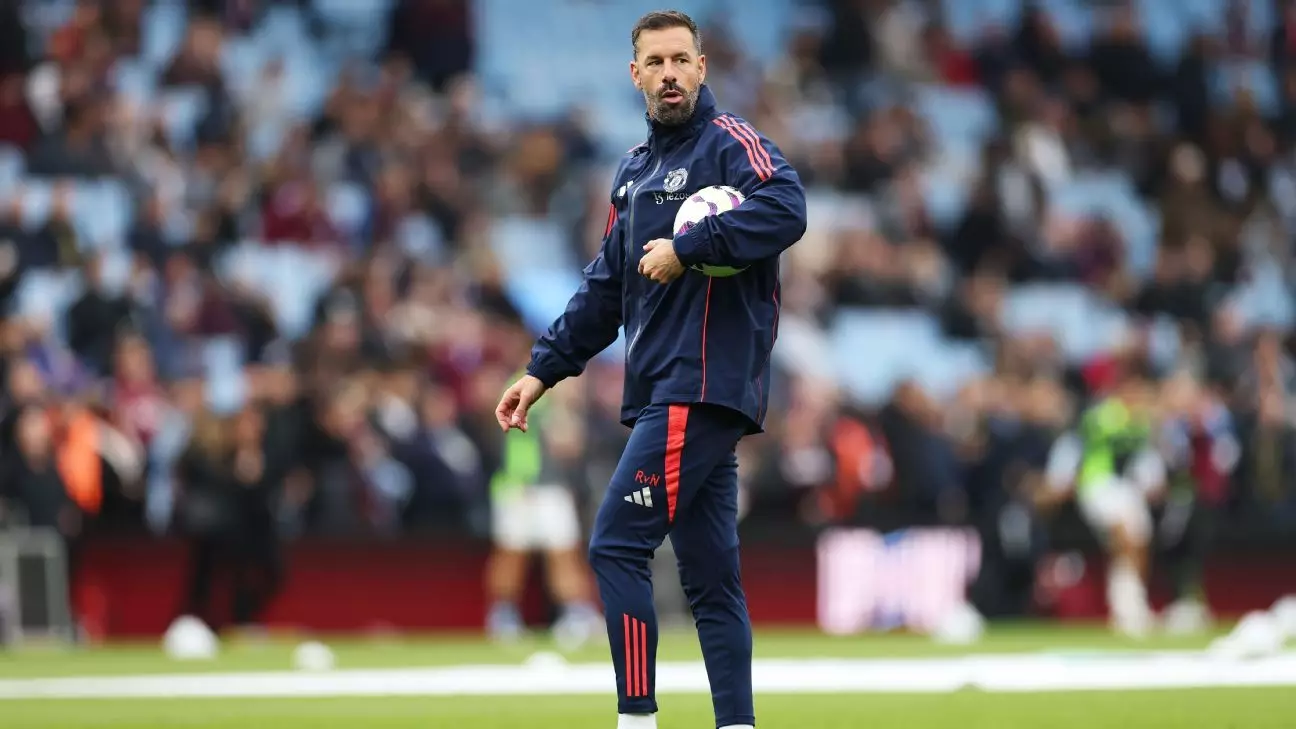The appointment of Ruud van Nistelrooy as interim manager at Manchester United represents not just a shift in leadership but a significant cultural turnaround for the club. Following the departure of Erik ten Hag, van Nistelrooy steps into the role at a time when the team is struggling, sitting 14th in the Premier League. While many former players take on roles behind the scenes, van Nistelrooy is no ordinary ex-player; he embodies a larger-than-life persona that resonates deeply within the United fabric. His history with the club, marked by a prolific scoring record, makes him a prominent figure, but his strong character can evoke mixed reactions.
Van Nistelrooy arrives at Old Trafford with a reputation not just as a remarkable player but also as someone who is not afraid to assert himself. During his playing days, he was known for his intensity, which led to notable confrontations with iconic figures, including Sir Alex Ferguson. This past, filled with fiery exchanges and emotionally charged moments, paints a picture of a man who stirred the dressing room dynamics. Ferguson himself acknowledged that by the end of van Nistelrooy’s tenure, he had become a “difficult boy.” This blend of competitiveness and emotional volatility makes van Nistelrooy a figure who commands attention and, potentially, respect and fear in equal measure.
While van Nistelrooy has claimed to have amicably resolved past conflicts, including with Cristiano Ronaldo, his reputation as a “big personality” remains intact. This trait may be precisely what United needs; the team’s morale has suffered under ten Hag, and players may respond positively to a leader who instills discipline without fear of confrontation.
Despite the controversies of his playing days, van Nistelrooy’s approach to coaching reflects a willingness to adapt. After stepping down from his position at PSV Eindhoven, where he initially struggled with player management and tactical execution, he has shown a readiness to learn. His brief coaching stint at PSV, during which the team adopted a counter-attacking style to compensate for defensive frailties, illustrates his pragmatic approach. This adaptability may serve him well as he transitions into a leadership role at Manchester United.
Working under established coaches like Guus Hiddink and Ronald Koeman in the Netherlands national setup has likely imbued him with valuable insights into successful coaching methodologies. The question now is whether he will embrace innovation and integrate different elements into his tactics at United, particularly when working with a roster currently lacking cohesion and confidence.
One of van Nistelrooy’s most significant challenges will be managing a team that has not fully responded to respectful authority in recent months. The dynamics between players during ten Hag’s reign hint at deeper issues that may have stemmed from tactical indecision and a lack of clear direction. As van Nistelrooy assumes the managerial role, he must focus on building trust and respect within the squad while fostering an environment where players can express themselves.
Reports indicate that he has already begun one-on-one meetings with players—a crucial step towards reestablishing rapport and ensuring that individuals feel valued. This aspect of managerial style could lead to a realignment of player motivation and performance, especially for those who may have fallen out of favor or felt unappreciated.
Given the considerable shortcomings of the current roster, van Nistelrooy’s task is steep yet urgent. Previous tactical decisions have raised eyebrows, particularly moves that saw players deployed in unfamiliar positions, causing confusion and poor team performance. Van Nistelrooy’s challenge will be to utilize his players’ strengths effectively, avoiding the errors of his predecessor. His experience as a top-level striker provides him an intimate understanding of attacking dynamics, enabling him to reconnect with players like Marcus Rashford and Bruno Fernandes, whose performances have waned.
The expectation now rests on van Nistelrooy’s shoulders, as he is entrusted with the task of rejuvenating a troubled club. If he can instill confidence, improve fitness levels, and enhance focus—addressing the issues that plagued ten Hag—there may be a route to revitalization.
As Manchester United looks ahead to its next fixtures against Chelsea and in domestic cup competitions, eyes will be on van Nistelrooy. His initial coaching decisions and player interactions will be closely scrutinized as football fans eagerly anticipate whether he can transform the current misfortunes into tangible success. His narrative as a player and his subsequent evolution into a managerial role positions him well, but whether his approach resonates amidst Old Trafford’s high-pressure environment remains to be seen. If he can reclaim the camaraderie and fighting spirit that characterized his playing days, United may just find the revival they desperately need.

